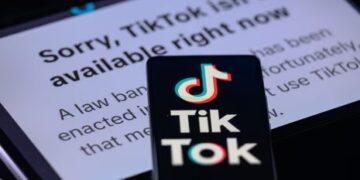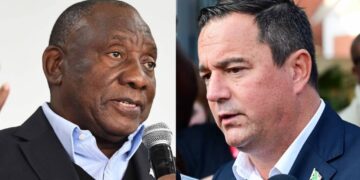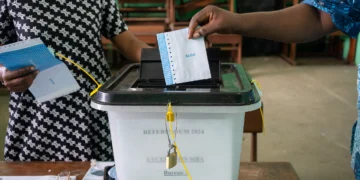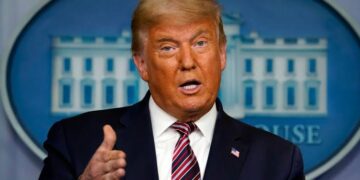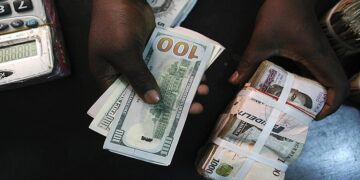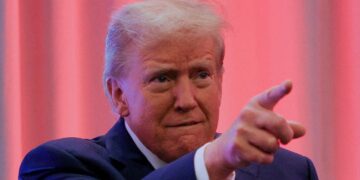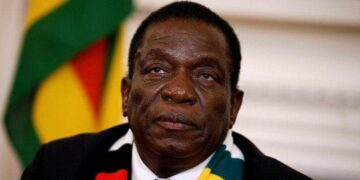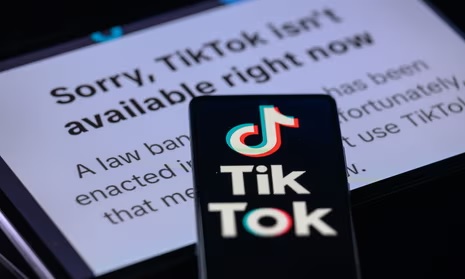TikTok has gone dark across the United States as a new law banning the app officially took effect, marking a significant moment in the ongoing debate over its future.
On Saturday evening, TikTok displayed a message to American users stating that the platform was now unavailable due to the implementation of the ban. It explained, “you can’t use TikTok for now.”
The ban stems from concerns about the app’s ties to the Chinese government. Lawmakers had set a deadline of January 19 for the platform to be sold to a US-approved buyer in order to avoid restrictions.
President Joe Biden deferred the decision to his successor, Donald Trump, who takes office Monday. Trump signaled he would likely provide TikTok with a 90-day grace period to address the situation.
“The 90-day extension is something that will be most likely done, because it’s appropriate,” Trump told NBC News on Saturday, adding, “If I decide to do that, I’ll probably announce it on Monday.”
In line with the new rules, the app has reportedly disappeared from Apple and Google’s US app stores. TikTok’s website also appeared to halt video access, reflecting the enforcement of the ban.
“We are fortunate that President Trump has indicated that he will work with us on a solution to reinstate TikTok once he takes office,” a message displayed on the app stated.
This marks the first time the US has enforced a ban on a major social media platform.
Last April, Congress passed the legislation requiring TikTok’s parent company, ByteDance, to sell the app or face a nationwide ban. On Friday, the US Supreme Court upheld the law, sealing TikTok’s fate unless divestment occurred by the Sunday deadline.
The company has argued that the law infringes upon free speech protections for its 170 million users in the United States.
Following the court ruling, TikTok’s CEO, Shou Zi Chew, expressed optimism in a statement, thanking Trump for his “commitment to work with us to find a solution.”
Chew is expected to attend Trump’s inauguration on Monday, signaling the possibility of renewed negotiations.
In the hours before TikTok went offline, creators flooded the platform with farewell messages to their followers.
Nicole Bloomgarden, a prominent user, shared with the BBC that the loss of TikTok would significantly impact her earnings.
Erika Thompson, another creator, lamented the potential disappearance of the app’s educational content, calling it “the biggest loss” for its community.
On Saturday, a message displayed on TikTok assured users that the company was “working to restore our service in the U.S. as soon as possible,” while confirming the temporary suspension.
Meanwhile, the UK government has ruled out following America’s lead on banning TikTok.
“We won’t be following the same path as the Americans unless or until… there is a threat that we are concerned about in the British interest, and then of course we will keep it under review,” said Darren Jones, Chief Secretary to the Treasury, in a BBC interview.
TikTok had previously been barred from UK government devices and Parliament in 2023 over security concerns.
However, Jones downplayed broader risks, adding, “For consumers who want to post videos of their cats dancing, that doesn’t seem like a security threat to me.”
